Simply Saigon, Vietnam's Jewel of The Delta.
It has been many years since I last visited Ho Chi Minh or, to give it its original name, Saigon and after just a day I vowed to try and get here on a more regular basis.
This sprawling city is now a metropolis that is on the move with the streets choked with an insectile swarm of millions of motorcycles, buses, cars and the occasional outdated cyclo that weave their way through traffic so dense it seems impossible to even think about attempting to cross a street.
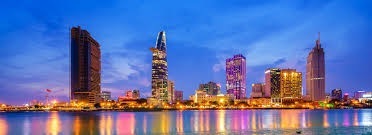
Saigon is a kaleidoscopic mix of heritage and history, exotic, elegant and bursting with a sense of zestfulness that has turned the city into one of Asia’s dynamic powerhouses easily rivalling its more established neighbours Bangkok, Singapore and Kuala Lumpur.
Two decades of sweeping economic reform has transformed Saigon from a war-ravaged, weary ruin into a thriving destination that now wears its newly found wealth with a sense of pride. Wide boulevards which, until just a few years ago housed dimly lit shop- houses and dingy restaurants now sport gleaming office towers and branded hotels while, at street level, luxury emporiums sit cheek by jowl enticing well - healed tourists to sample their imprted goods.
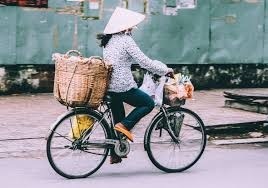
It was the Khmer fishermen who first eked out a living here on the banks of the Saigon River, a mighty tributary of the even mightier Mekong, They built their modest dwellings on the high ground north of the delta wetlands and named the area Prei Nokor. Rich pickings from the rivers and the fertile lands saw the area flourish which naturally attracted attention from the north and by the end of the eighteenth century the Viets had subdued the area and it was swallowed whole to become part of the Nguyen Dynasty who gave it a new name, Saigon which is a Vietnamese name for the Kapok tree.
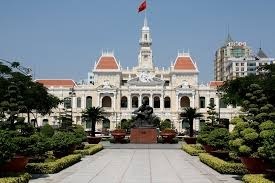
Much of Saigon owes a lot of its form and character to the French colonists who, once they had 'colonised' the area, set to work draining the vast marshlands and constructing regimental boulevards which they lined with tamarind trees which even after over a hundred years still provides ample shade from the harsh tropical sun.
During the 1930’ and ’40s, these boulevards sported traditional French names such as Boulevard de la Somme and Rue Rousseau along which classic examples of stylish European architecture were erected. The city took on an air of Gallic ambience as cafes, patisseries, and bars sprang up on corners dispensing baguettes and Vermouth to cater to the ever-growing tide of French immigrants. In 1934 Somerset Maugham visited the city and remarked,” I found it reminiscent of a little provincial town in the South of France.”
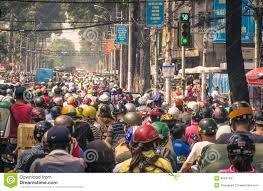
The French were able to bankroll this city on the delta by planting vast rubber plantations and expanding the already thriving rice industry and exporting the goods back to France from the new seaport that the city had morphed into.
Post World War 2 the country was divided in two and in 1954 Saigon was designated the capital of the Republic of South Vietnam under President Diem. This situation was not to last for very long with the beginning of the Vietnam war, or as the locals refer to it as, the American war. After the withdrawal of the American Troops in 1973 the communists assumed control and a year later renamed the city Ho Chi Minh.
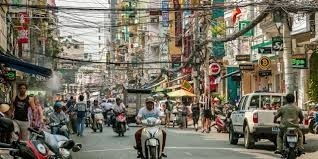
The war years extracted a heavy toll on the south with the Americans carpet bombing much of the countryside forcing millions of citizens to seek refuge in the city. After the fall of Saigon, these refugees suffered terribly at the hands of the Vietcong as they were seen to have collaborated with the Americans and were interred in harsh ‘re-education ‘ camps while many millions more fled the country by boat.

It took almost twenty years before economic liberalization or doi moi, was introduced and a market economy began to flourish. Another twenty years on from that, the city has more than found it’s feet and the resurgence has produced a burgeoning middle class who eye the future with unprecedented optimism.
Ho Chi Minh today is divided into twenty-four districts although most visitors rarely venture further than districts one, two and three. District one is technically the heart of the city and hugs the banks of the Saigon river. Here, major metropolitan hotels, shopping centres and banks reside along with stylish restaurants, and more rooftop bars that can be found anywhere else in South East Asia.
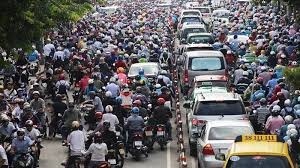
Saigon is a city that doesn’t disappoint even with its chaotic traffic and a twenty- four - hour lifestyle. The central district (1) has some wonderful relics of its French colonial past although many of these are fast disappearing as rapacious developers obliterate vast swathes of the city in order to erect ever taller high rise buildings. There are still plenty of gems to explore such as the old General Post Office, a classic colonial edifice that has remained the same since its completion in 1880. Inside are two huge map - murals charting the city in 1892 and the other showing the telegraphic lines of Vietnam and Cambodia all overlooked by a giant portrait of Ho Chi Minh himself.
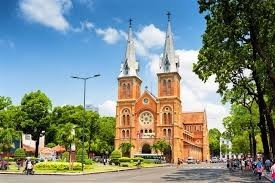
Dotted around the city centre there are still some stunning examples of French architecture symbolized by the Hotels De Ville, Rex and Majestic which still exude a sense of colonial charm. The imposing Notre Dame Cathedral with its soaring spires is a perfect landmark to orientate the first time visitor. The American War Museum is probably a must, although prepare to emerge from a harrowing visit slightly depressed.
For the more adventurous, a visit to Saigon would not be complete without venturing to district three and a wander through the crowded and, to the untrained eye, chaotic markets of Cho Lon.
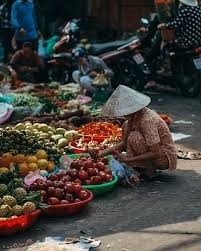
This area, which was the original ‘Chinatown’ is made up of a dense cluster of streets that spread out in every direction like capillaries without any discernable pattern, each of which house a veritable Aladdin’s cave full to the brim with everything imaginable.
Cho Lon (whose name, means “big market” couldn’t be more appropriate) literally throbs with life. Pavement barbers snip and shave their customers alongside young girls selling a colourful variety of songbirds while aged and stooped Vietnamese women cook delicious looking fried spring rolls in giant woks over an open flames.
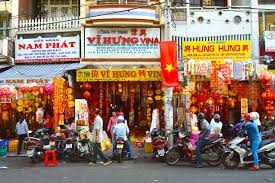
It's easy to lose oneself in the melee of life that goes on here where rapid-fire commerce takes place in the shadow of pagodas and sacred temples as it’s a visual and tactile feast that instantly envelopes one in its exotic cocoon.
Ho Chi Mihn or Saigon, no matter what you call it, is one of those places that should be seen, if only to say, “now I can die happy”
It's simply brilliant!
Paul v Walters is the best selling author of several novels and when not cocooned in sloth and procrastination in his house in Bali he occasionally rises to scribble for several international travel and vox pop journals.
Artikel dari Paul Walters
Lihat blog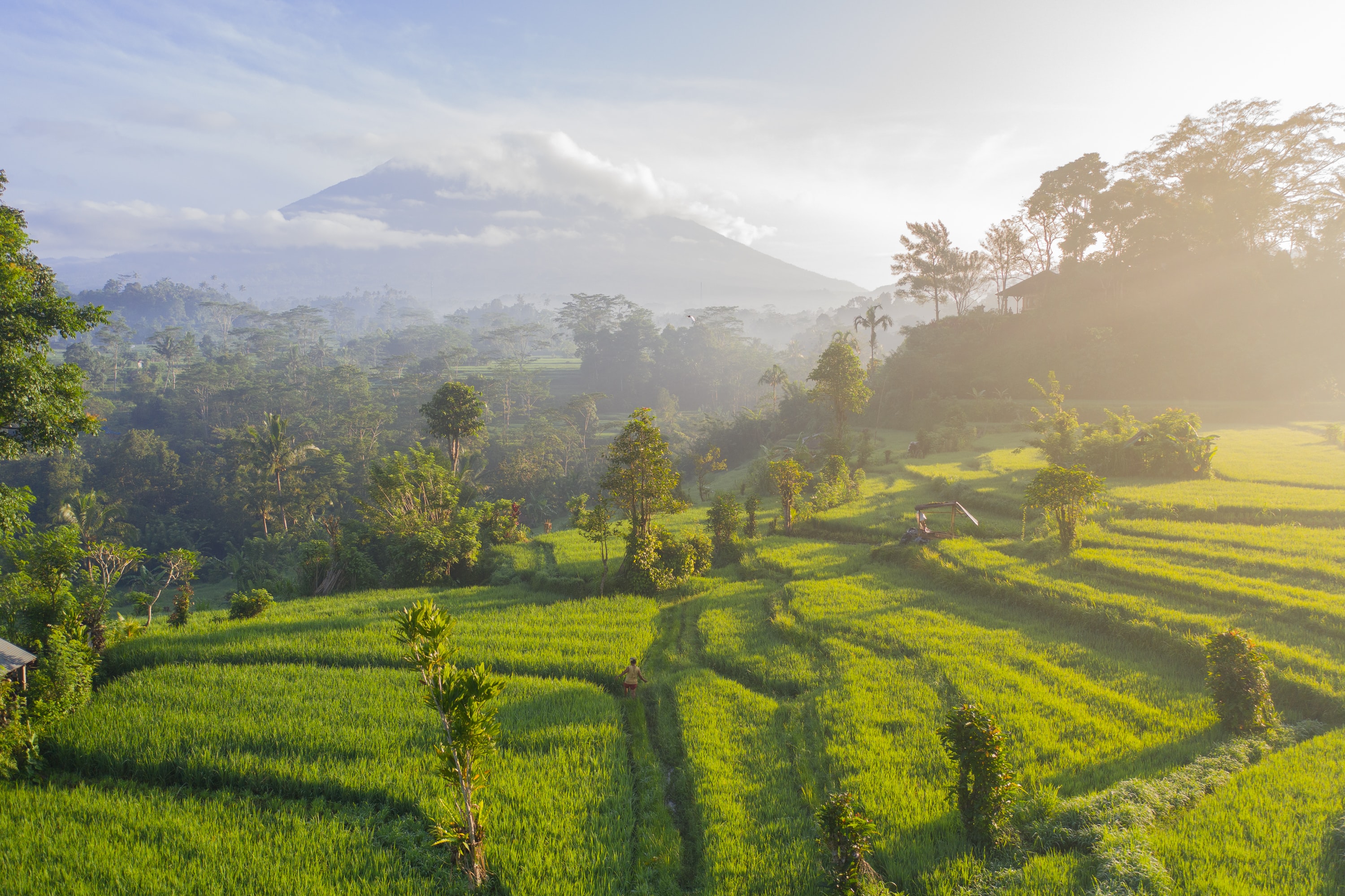
On the 18th of February 2020, the Governor of Bali in Indonesia made a painful decision. As of midni ...
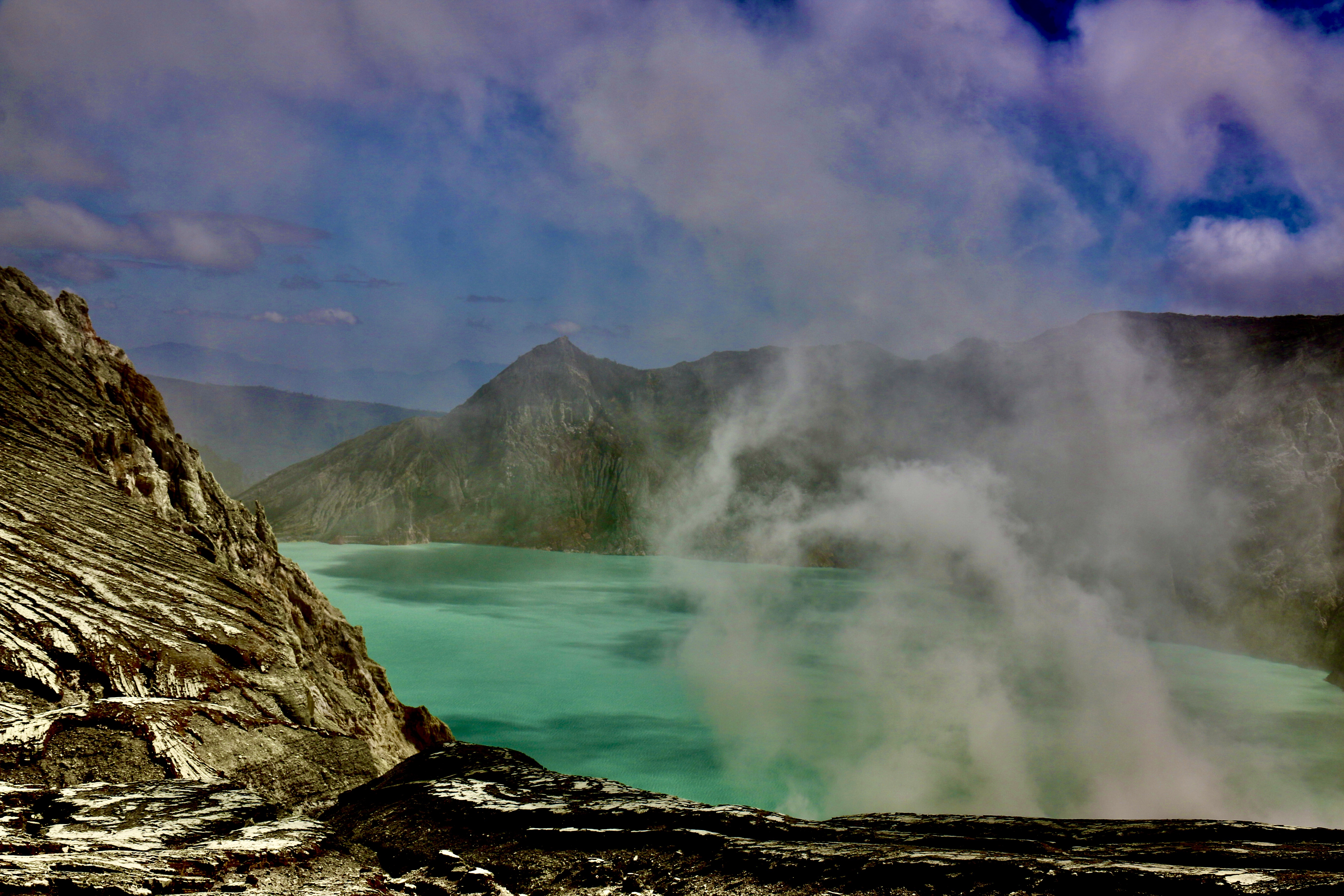
Standing at the foot of Mt Ijen contemplating the steep sides of this mighty colossus, rising some 2 ...
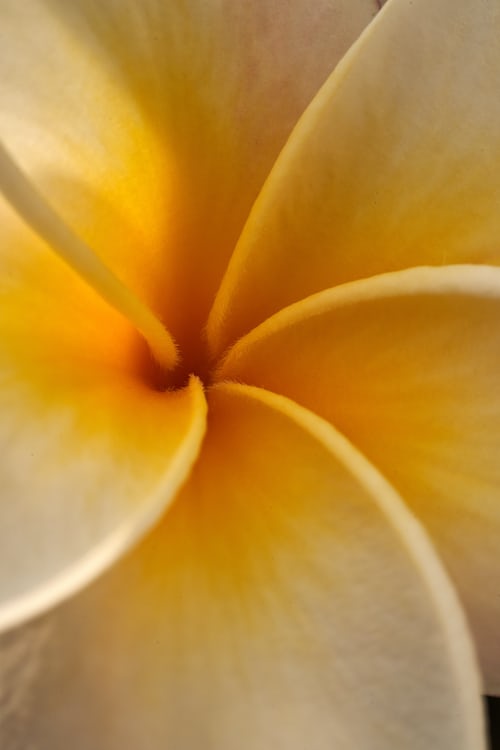
In the dark times · Will there also be singing? · Yes, there also will be singing · About the dark t ...
Profesional terkait
Anda mungkin tertarik dengan pekerjaan ini
-

Finance Specialist
Ditemukan di: beBee S2 ID - 20 jam yang lalu
RGF HR Agent Recruitment indonesia - jakarta, Indonesia Permanent- Supporting superior through dealing with financial matters related to projects- Making, modifying, and analyzing economic models for developing new renewable projects by the request from superior- Coordination, collaboration, and negotiation with externally related- Collaborate ...
-

Business Development Chemical
Ditemukan di: beBee S2 ID - 6 hari yang lalu
RGF HR Agent Recruitment indonesia - jakarta, Indonesia Permanent- Manage trading business under Inorganic and advanced material domain.- Leveraging the assigned business and expected to understand market structure, both customer's and supplier's strategy.- In a long term will be responsible to developing new business with leveraging the exist ...
-

IT Supervisor
Ditemukan di: beBee S2 ID - 2 hari yang lalu
RGF HR Agent Recruitment indonesia - tangerang, Indonesia Permanent- Supervise, coordinate, and train IT staffs to perform all actions related to all IT matters. - Maintain all Software, Hardware, and security systems. - Software development support (full stack programming) - SAP R3 support. - Make sure troubleshooting of IT systems (PC, Servers ...
Komentar
Pascal Derrien
5 tahun yang lalu #16
Proma Nautiyal
5 tahun yang lalu #15
Paul Walters
5 tahun yang lalu #14
Monty Roodt . Thanks Monty
CityVP Manjit
5 tahun yang lalu #13
#17 Debasish I noticed those technical glitches last night also but I did manage to share this buzz to my Yellow hive so the problems are intermittent. I could not submit a post last night or updates this morning, so I simply transferred the post to LinkedIn https://www.linkedin.com/pulse/resolutions-cityvp-manjit/ and ironically that particular post was written first here at bebee.
Debasish Majumder
5 tahun yang lalu #12
Paul Walters
5 tahun yang lalu #11
CityVP Manjit
5 tahun yang lalu #10
I know even less about Finland than I do Vietnam apart from Nokia phones and Linux. Yet like Vietnam I think I should get to know Finland too. Having read this Rolling Stone piece https://www.rollingstone.com/music/music-news/hear-hanoi-rocks-michael-monroe-talk-glam-rock-with-chris-shiflett-696897/ turns out that as the article says " the greatest Eighties rock band that never was " actually contains a rather interesting back story and history. The trouble is that when it comes to music Finland does not leave a great musical legacy as that which is defined by the Vietnam War https://www.youtube.com/watch?v=CTZMSKu4gLQ
Paul Walters
5 tahun yang lalu #9
Paul Walters
5 tahun yang lalu #8
Jerry Fletcher And so he should be, the Vietnamese seem to have energy to burn, and then some.
Ken Boddie
5 tahun yang lalu #7
don kerr
5 tahun yang lalu #6
Jerry Fletcher
5 tahun yang lalu #5
CityVP Manjit
5 tahun yang lalu #4
Ian Weinberg
5 tahun yang lalu #3
Paul Walters
5 tahun yang lalu #2
Paul Walters
5 tahun yang lalu #1